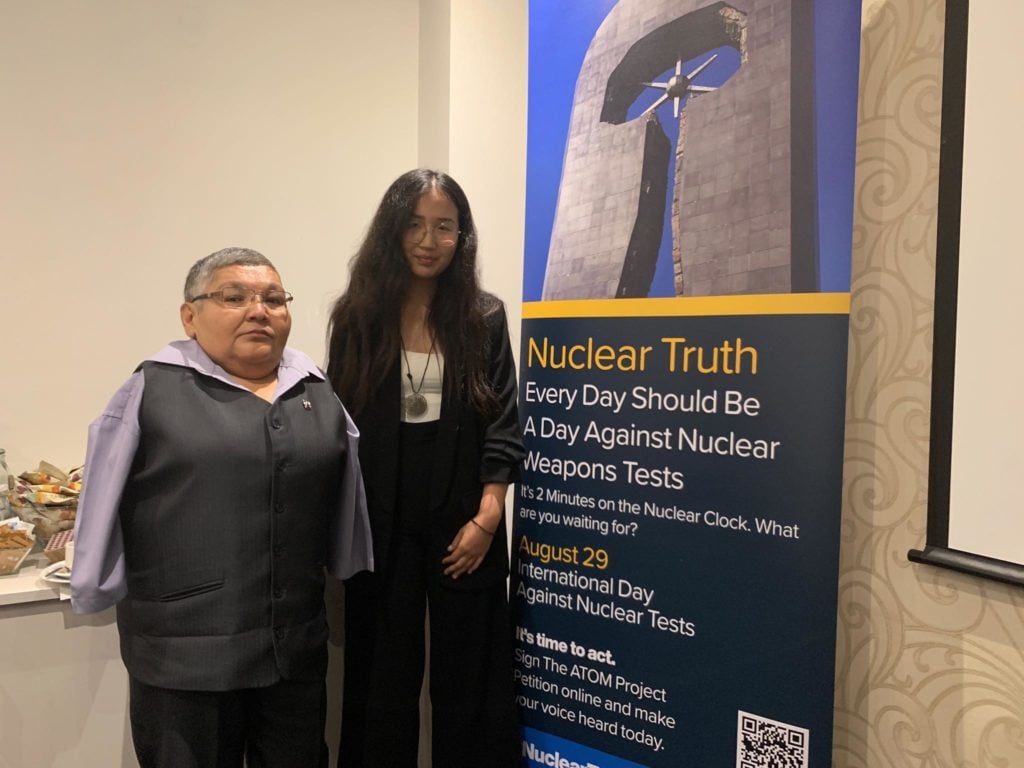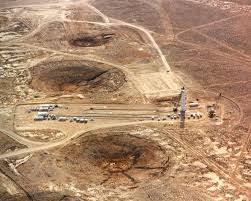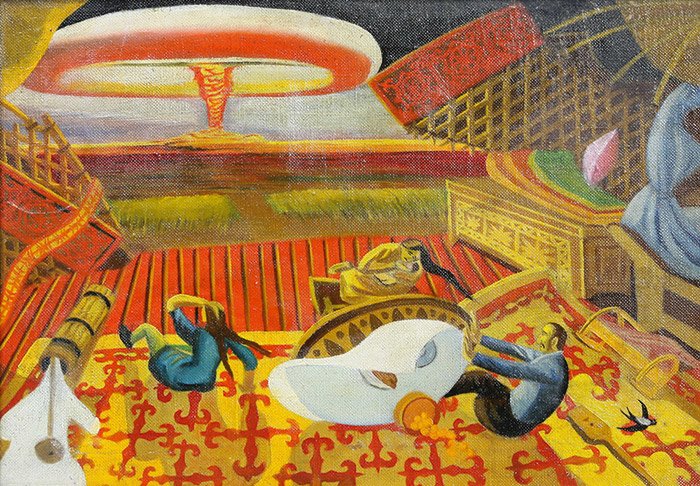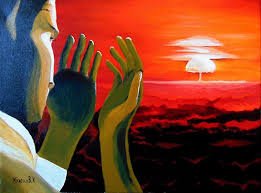The Central Asia Forum team attended the screening this September of the documentary ‘Where the Wind Blew’ by famous British director Mr Andre Singer, at the First President Foundation Office in London. The event, organised by Kazakhstan’s First President Foundation in the UK, honoured the International Day against Nuclear Tests, which marks the closing, in 1991, of the nuclear test site in Semipalatinsk, Kazakhstan.

One of the main characters of the film – the Honorary Ambassador of the ATOM Project, the outstanding Kazakhstan artist Karipbek Kuyukov took part at the film screening.

The enlightening film tells about the catastrophic humanitarian consequences of the nuclear test and the anti-nuclear movement Nevada-Semipalatinsk (the two locations were the main nuclear testing sites of the US and the USSR), which united the people of the two warring countries against nuclear weapons. Using archival footage and interviews with survivors and victims of nuclear weapons testing, ‘Where the Wind Blew’ is not about the catastrophe itself, but about the activists, who facilitated the change that saved the humankind.
In addition to gaining this invaluable knowledge and understanding of the matter, I was honoured to meet the artist Karipbek Kuyukov in person, and question him about his touching artworks. While his story is one of the most exceptional ones, Mr Kuyukov is not the only one whose life was affected by the nuclear tests in the Semipalatinsk region.

The Soviet Union conducted 456 nuclear tests at Semipalatinsk from 1949 until 1989 with little regard for their effect on the local people or environment. As the film suggests, the children of the Kazakh people who were exposed to the radioactive fallout in the 1950s, developed mutations and were much more likely to develop cancer for generations ahead. The full impact of radiation exposure was hidden for many years by Soviet authorities and has only come to light since the test site closed in 1991.
As the modern society develops higher awareness about the social and political issues we face internationally, the danger of the storage and usage of the nuclear weapons should not be dismissed. As the film highlights, the appalling reality is that there are currently 10,000 nuclear weapons stored and ready for use across the world.

If you had to only remember one thing after reading this article, it would hopefully be the phrase ‘Atom Project’. The Atom Project is committed to eliminate the World’s nuclear Arsenal. You can help prevent the possibility of a nuclear disaster by following the link below and signing the petition here.
While I had an exceptional opportunity to gain more knowledge about the issue, I was also amazed by how human the movie and the presented artworks were. In the end, knowing and talking should not be the ends, but the means, through which we can get the actions started.
On behalf of the Central Asia Forum at Warwick, I would like to thank the First President Foundation, and Mr Karipbek Kuyukov, for their invitation and for the hard work they do to reach international peace.